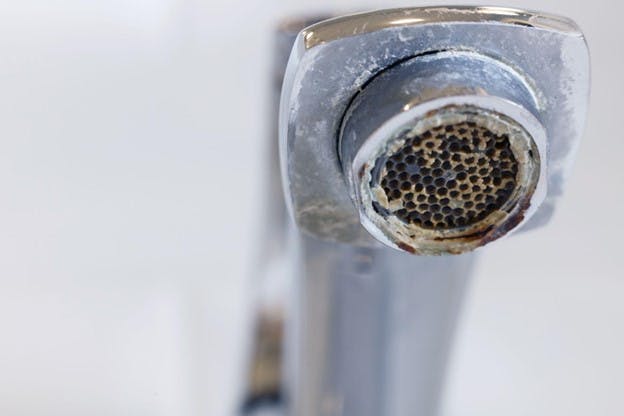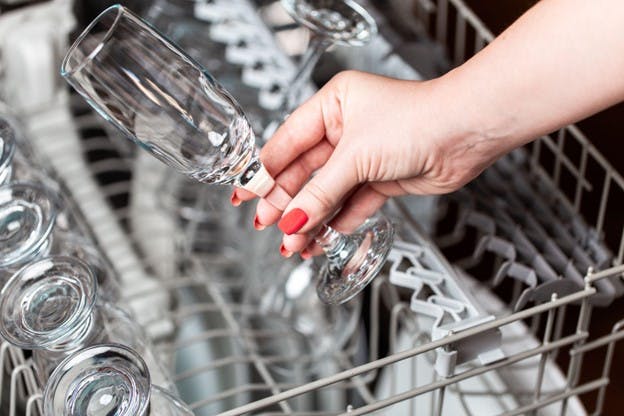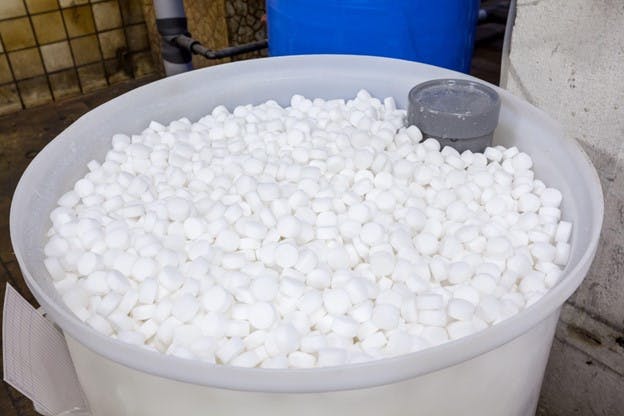🌟 New Arrival! Upgrade Your Water with Our Advanced Pitcher Filter. Shop Now
March 2023
How a Salt-Free Water Conditioner Works to Save Your Pipes
Only about 2.5% of the water on Earth is freshwater, and much of that will never be seen — because it’s beneath our feet. Worldwide, there is almost 30 times more water flowing underground than there is in all the lakes, rivers, streams and other surface water combined. This abundance makes groundwater one of the best sources of tap water for most cities in the U.S. and Canada. And, critically, the source of your water determines what’s in it when it gets to you.
Water that flows through dirt and rocks picks up many contaminants on the way. These contaminants can be living organisms like bacteria and viruses, they can be man-made substances like plastics and synthetic chemicals, or they can be the naturally occurring minerals that make up so much of the Earth.
When water has a large amount of certain types of minerals, it is considered to be hard water. If you have hard water, you know the frustration and extra expense it can cause. So what can you do about it?
There are a few ways to treat hard water. One of the more popular — and often one of the only legal solutions in many states — is called a water conditioner. But what is a water conditioner, and how does a water conditioner work? Let’s take a look at these water treatment systems and figure out if they are the right solution for your unique situation.
What Is Hard Water, and Why Do We Have It?
Hard water is water that contains an overabundance of mineral solids like calcium and magnesium. As groundwater journeys through the earth, these mineral solids are accumulated in high concentration. If you’ve ever picked up a once-jagged rock that’s been smoothed by a river, you already understand the corrosive power of water.
When water breaks down these rock edges or anything else it passes over, it carries those particles with it until they get lodged elsewhere. For the most part, these particles and mineral solids are not only harmless to human health but are what expensive bottled water brands often tout as benefits.
However, when it comes to your pipes and modern appliances, these tiny particles of rock can be very damaging.
What Are the Problems Hard Water Can Cause?
The effects of hard water can seem like more of a nuisance than anything. No one wants to deal with the white crusty scale buildup on their showerhead or the stains around their drain. Yet, hard water is the cause of many other problems that most of us don’t realize. These can hurt both your pocketbook and your health.
Besides leaving spots on your glassware, these hard water minerals:
- Clog and corrode your pipes and water fixtures, decreasing their lifespan and your water flow rate
- Damage water-using appliances like dishwashers, lowering their energy efficiency
- Collect limescale buildup in your hot water heater, making is less effective and prone to leaks
- Make detergent and shampoo less effective so you have to use more of it to get a good lather
- Damage and dull fabric so you have to replace clothes and linens more often
- Clog water filtration systems so they are less effective and have to be replaced more often
- Stick to your surfaces, making them harder to clean
- Give bacteria a place to grab onto and grow in your pipes and on your surfaces
- Dry out your hair and skin, causing many people to reach for expensive products to deal with the damage
As you can see, hard water is much more than a small nuisance. Fixing your hard water problems can save you time, money, and tons of frustration.
How Do I Know if I Have Hard Water?
Because most water starts its journey as groundwater, it's estimated that up to 90% of tap water in the United States is hard water. In many cases, figuring out if you’re in that 90% is as easy as checking your faucets for mineral buildup or rubbing your hands over your shower tiles and feeling for that telltale chalkiness and soap scum.
To find out the specific level of water hardness (measured in grains per gallon, or gpg), one of the easiest ways is often to just ask your water company if they know. If your water company doesn’t track the hardness of your water or if you use private well water, you’ll have to test it yourself.
Check out the U.S. Environmental Protection Agency’s guide on water testing to find out how to get a test kit to determine your water quality.
Once you know you have hard water, it’s time to look at solutions like water conditioning systems.
What Is a Water Conditioner?
A water conditioner is sometimes alternatively known as a salt-free water softener or a salt-free water conditioner. This kind of water treatment system is different from a water softener.
Traditional water softeners use negatively charged resin beads to pull the positively charged calcium and magnesium ions from the water. This is called the ion exchange process. Then, in what’s known as the regeneration process, sodium chloride from a brine tank is washed over the beads. The salt attracts the hard water minerals from the resin, and then the salt water is flushed with your wastewater. This cleans and renews the resin bed so it can soften more water.
While water softeners soften water by removing the hard water minerals, a water conditioner doesn’t remove anything from the water. Instead, it alters the structure of the minerals found in the water so they’re no longer a nuisance.
How Does a Water Conditioner Work?
Water conditioners don't remove hard minerals like traditional water softening systems; instead, they use template-assisted crystallization to crystalize them. This change in structure makes these minerals less sticky so they will no longer gunk up your pipes and, over time, will even help to descale any old mineral deposits you may have. This is why you might see salt-free water softeners and conditioners being called water descalers sometimes.
What Are the Advantages of Water Conditioners Over Water Softeners?
We love water softeners, but they aren’t the right solution for everyone. When comparing water softeners to water conditioners, we find there are many advantages to going with a water conditioner that you should be aware of. Here’s a few of them:
Water Conditioners Are Cheaper Than Water Softeners
Water softeners are complex, multicomponent smart systems that track your water usage to determine when they need to regenerate the resin bed. While water softeners easily pay for themselves over time, they are more expensive up-front when compared to water conditioners that will give you similar benefits.
Water Conditioners Are Easier to Install Than Water Softeners
Water softeners are sizable systems that require a good deal of space and access to your sewer lines. This means a water softener will almost always require a professional plumber to come and install it.
Water conditioners don’t need this space, and since there is no saltwater discharge, they don’t require special access to your sewer lines. This makes them much easier and cheaper to install. Some even hook right onto your whole house water filter.
Water Conditioners Are Better for the Environment Than Water Softeners
Water softeners work because they are constantly monitoring your home water usage so they know when to regenerate. This uses a small but constant amount of electricity and, unfortunately, a lot of extra water.
The regeneration process uses several thousand gallons of freshwater per year, and then it dumps that salty water into the sewer systems where it can cause damage to septic systems and the environment.
Water conditioners don’t use electricity or salt. There is nothing to regenerate so there is no wastewater. This makes water conditioners much more friendly to the environment.
Water Conditioners Are Legal Everywhere
With water conservation and wastewater treatment very high on the list of priorities for many cities today, water softeners have actually been banned in multiple places around the U.S.
Since water conditioners don’t waste any water and they don’t dump salt water into the sewers, they are completely legal everywhere.
Water Conditioners Don’t Require Regular Maintenance
Water softeners need salt to work. Not just a little salt, either. Be prepared to keep several 50-pound bags of salt nearby so you can top off the salt tank every few weeks to a month.
Water conditioners don’t require any salt or regular maintenance. They are as close to “Set it and forget it” as you can get.
Water Conditioners Are Better for Your Health
While hard water minerals can wreak havoc on your home and clothing, calcium and magnesium are actually essential nutrients for the human body. Water softeners remove these nutrients and add a small amount of salt to your water. The salt isn’t enough to taste, and in most cases, it shouldn’t have any negative consequences to your health, but if you’re sensitive to salt, a water conditioner could be the way to go for healthier drinking water.
Water Conditioners Are the Best of Both Worlds
If you’re a homeowner who’s dealing with hard water, you have choices available to you. Understanding what a water conditioner is versus a water softener can help you figure out which would work best for your situation.
While water conditioners don’t actually provide you with softened water, they do improve your water quality and descale your pipes. They also have many benefits over traditional water softening systems that make them an ideal solution for many of our customers who are dealing with hard water.
At HomeWater, we offer many affordable options to make sure you have great tasting, clean water you’ll feel good about. Whether you want a traditional water softener or a salt-free water conditioner, we’re sure to have a system to fit your needs.
Our water conditioners come as either a standalone system with a built-in sediment pre-filter or as an add-on to our 4-Stage Whole Home Filters. No matter which one you choose, we know you’re going to love the way your water tastes.



